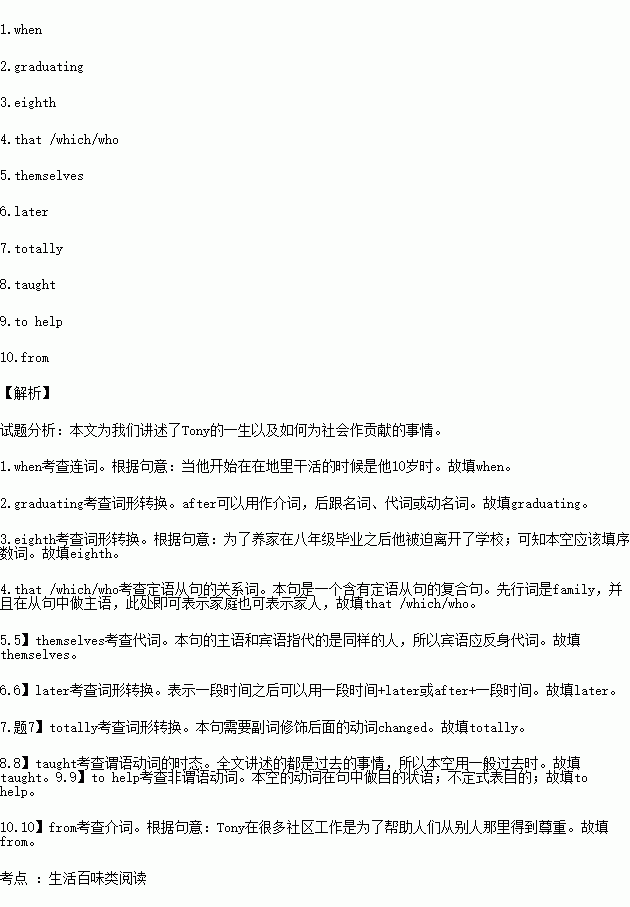题目内容
语法填空题
阅读下面材料,在空白处填入适当的词或括号内单词的正确形式(每空最多3个词)。
Tony was born on a small farm near Yuma Arizona on March 31, 1931. Tony was ten years old 1.______ he began working in the fields. He was forced to leave school after 2.______ (graduate) from the3.______ (eight) grade in order to support his family4.______ had very little money and often not enough food to eat. But Tony and his family never thought of 5._____ (them) as being poor. His mother would often tell him and his brother Richard to find homeless and hungry men so she could cook them a meal.
A few years 6.______(late), Tony met a man named Fred Ross. And his life7.______(total) changed. Fred Ross believed that if people worked together, they could make their community(社区) better. Tony now worked to bring people together and find ways to address their problems. Tony, Fred Ross and the Community Service Organization helped people in the community learn how to vote. They also8.______ (teach) people that community leaders should respect (尊重) voters. Tony worked in many communities 9._____ (help) people get respect10.______ others.
 阅读快车系列答案
阅读快车系列答案
